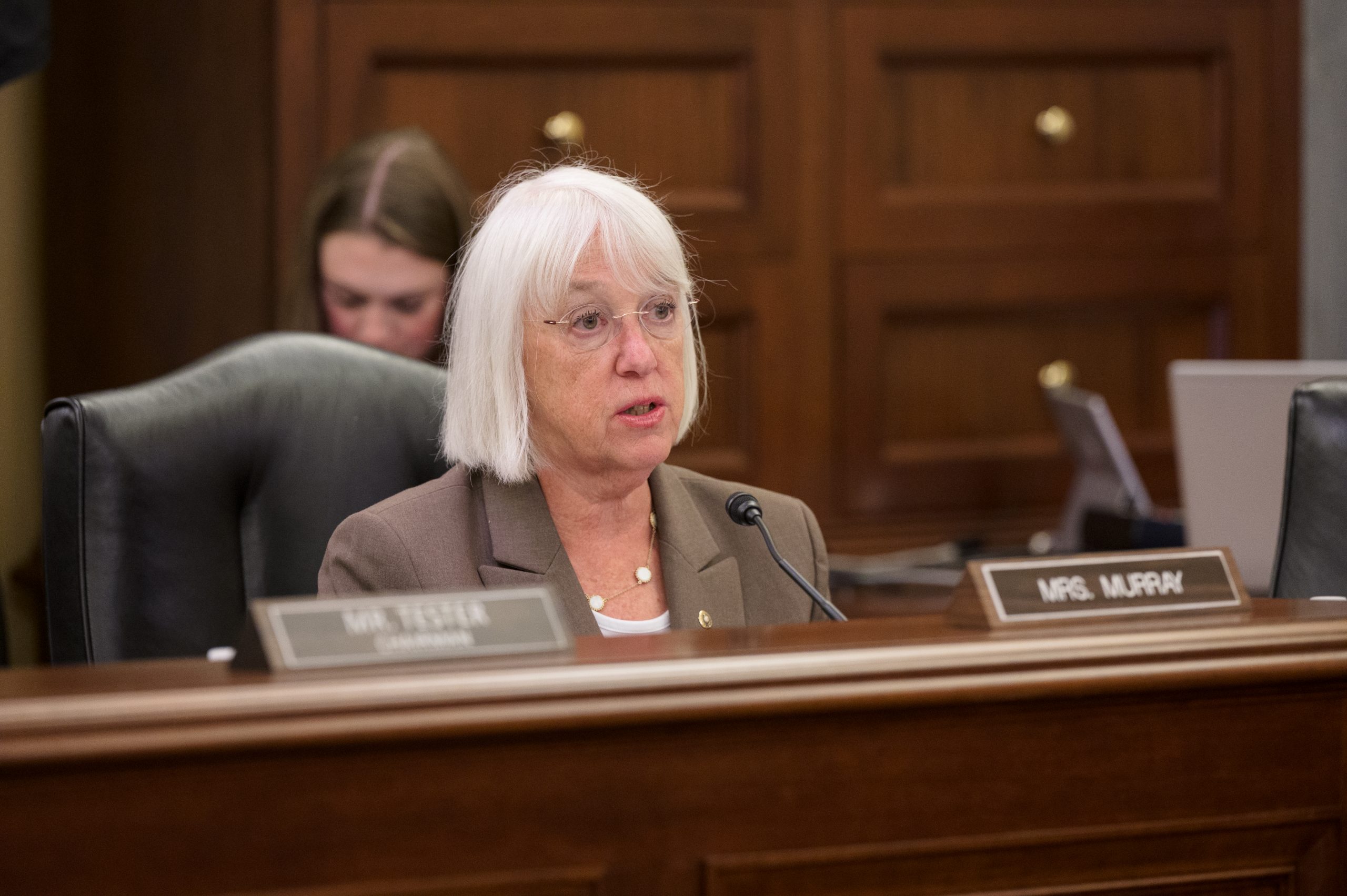***WATCH: Senator Murray’s Questioning***
Washington, D.C. – Today, U.S. Senator Patty Murray (D-WA), a senior member and former chair of the Senate Health, Education, Labor, and Pensions (HELP) Committee, attended today’s HELP committee hearing titled, “Addressing Long COVID: Advancing Research and Improving Patient Care.” Senator Murray noted some of her recent efforts to tackle Long COVID and underscored the importance of Congress taking further steps to address Long COVID and help patients across the country.
“Since the COVID-19 pandemic, I have pressed for more NIH funding to help us better understand and treat Long COVID—I continue to fight for strong funding levels for health research and public health infrastructure as we negotiate our current funding bills,” said Senator Murray. “Last Congress, I fought hard to pass my PREVENT Pandemics Act to make sure we wouldn’t be caught so unprepared whenever the next pandemic hits.”
“Still, there is so much more we have to do: we need better information, care, treatment—and public awareness to help with prevention,” Senator Murray continued. “I know for the patients dealing with this—Long COVID is a serious, life altering condition, and one we are still learning more about every day. So thank you for sharing your stories.”
Emphasizing that “our country needs to take women’s health more seriously,” Senator Murray began her questioning by asking the first panel of witnesses about the challenges they faced as women seeking care and treatment for Long COVID complications. “Given the barriers women already face in getting quality care, what are some of the unique challenges you all may have seen as women seeking care and treatment for Long COVID complications?
“Early on I did have a doctor that kept saying that it was just depression and anxiety—that’s why I was achy, that’s why I was tired… and that’s very discouraging as a woman—or any patient—that it’s all in my head,” said witness Rachel Beale, an individual with Long COVID.
Next Murray asked about access to care for Long COVID, saying “a lot of patients with Long COVID in my state of Washington have told me that they have really limited access to quality treatment and rehab services—the University of Washington’s Post-COVID Rehabilitation and Recovery Clinic is one of the few that we have in a very large state… What do you want to see done at the federal level to expand access to quality care for Long COVID patients?”
“We need to broadly disseminate basic diagnostic and screening tools to primary care physicians—they are the front line, they are the first person that folks go to after an infection with these somewhat nebulous symptoms,” said witness Angela Vazquez, an individual with Long COVID and the Policy Director for the Children’s Partnership. “These conditions have existed, we have clinical diagnostic tools to be able to diagnose and then manage these conditions—that needs to be disseminated widely.”
Senator Murray, as former Chair of the HELP Committee and Senate Appropriations Labor, Health and Human Services, Education, and Related Agencies (LHHS) subcommittee, led the Senate in securing funding for the Researching COVID to Enhance Recovery (RECOVER) Initiative at the National Institutes of Health (NIH) through the Coronavirus Response and Relief Supplemental Appropriations Act. In the Fiscal Year 2023 appropriations bills, Senator Murray secured $10 million for the Agency for Healthcare Research and Quality (AHRQ) specifically for Long COVID. This is a initiative that Senator Murray is fighting to protect as she negotiates the final FY24 appropriations bills.
In Senator Murray’s Fiscal Year 2024 Labor, Health and Human Services, Education, and Related Agencies (LHHS) appropriations bill she secured a $943 million increase in funding for the NIH and she protected $350 million for Public Health Infrastructure and Capacity, maintaining the 75% increase secured in fiscal year 2023 to bolster public health infrastructure and rebuild the workforce at the state and local level to be ready to respond to emerging public health threats. Senator Murray is also working to secure $5 million to support Long COVID Centers of Excellence in the FY24 LHHS bill. Murray is currently negotiating the final FY24 appropriations bills with her House counterparts.
Last year, Senator Murray reintroduced the Public Health Infrastructure Saves Lives Act (PHISLA) to establish $4.5 billion in dedicated, annual funding for a grant program to build up and maintain the nation’s public health system across the board. Last Congress, Senator Murray passed her landmark Prepare for and Respond to Existing Viruses, Emerging New Threats, and Pandemics Act (PREVENT Pandemics Act) into law which seeks to strengthen the nation’s public health and medical preparedness and response systems.
###


